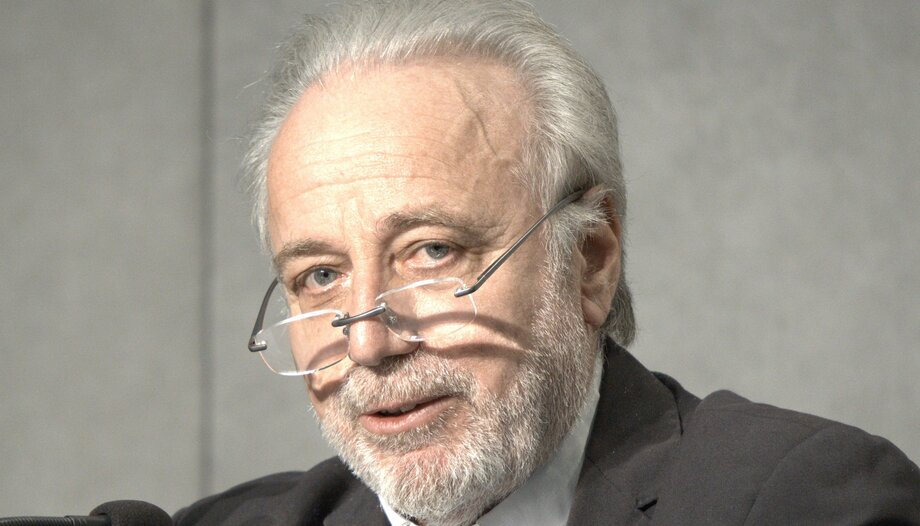The journey towards the second session of the XVI Ordinary General Assembly of the Synod of Bishops, which will take place at the Vatican next October, does not stop. After the presentation of the "Instrumentum laborisThe "Vademecum", which took place last July 9 in the Vatican press room, is now expected to be published, which should contain a reasoned commentary on this working text.
Piero Coda, secretary general of the International Theological Commission and professor of dogmatic theology at the Sophia University Institute of Loppiano, confirmed the news. The theologian, called to coordinate a synodal working group in view of the second session, explains in an interview to Omnes that this vade-mecum, presumably ready by mid-August, will be very useful because "it will offer perspectives of theological, pastoral and canonical deepening".
Intense prayer, an important step
Among the many steps that must be taken to arrive at the opening of the second synodal session, there are some that should be considered of primary importance. First of all, Coda explained, "it is desirable that the local Churches, the Episcopal Conferences in particular, examine the 'Instrumentum laboris', as should the members of the next session of the Synod." Without forgetting, he added, the dimension of prayer that "should be intense especially on the part of communities, monastic institutes, cloistered nuns and, of course, all the people of God".
But accompanying the preparation of the new synodal phase should also be, according to the theologian, "the possibility of deepening through the media, such as social networks, to make not only the entire people of God aware of the importance of this event, but also to filter the demands of the Synod in a broader social and cultural sphere."
Choral instrument
The "Instrumentum laboris", in essence, is considered the fruit of listening to the requests coming from the local Churches, Episcopal Conferences, ecclesial movements, religious and lay people from all over the world. Piero Coda, summing up, defines it as a choral instrument: "And we could add that it can also be considered a rather original instrument in the path that the various synodal events have so far positively followed: the proposals made at the local level have become central in determining the perspective and the concrete contents of the 'Instrumentum laboris'. Which, as can be imagined, starts from the synthesis report of the first synodal session".
The three dimensions
The "Instrumentum laboris" has three dimensions: that of relationships, that of paths and that of places. "It is a good perspective - the theologian affirms - to decline what is the fundamental theme of the Synod: how to be a synodal Church. And how to be a synodal Church implies, in the first place, a vision and a practice of relationships within ecclesial life that conforms to the synodal and missionary vocation of the People of God." Relationships, he adds, that "must mature thanks to concrete paths and that finally must be incarnated in places where the synodal nature of the whole Church, global and local, is expressed".
Ministerial church
In the chapter dedicated to relationships, among other instances, the "Instrumentum laboris" highlights the one dedicated to ordained ministries and the possibility of giving life to new ministries. Coda is convinced that "a very deep and articulated awareness is maturing that the ministeriality of the Church is not only the prerogative of what we know as ordained ministries-episcopate, presbyterate and diaconate-but implies a promotion, linked also to the various ecclesial contexts of the world, of the instituted ministries and a valorization of the baptismal ministry, of those born of the sacrament of confirmation and of the sacrament of marriage. A totally ministerial Church founded on the discernment of the action of the Holy Spirit".
Change of pace
In the pathways dimension, there is an aspect of transparency, accountability, and evaluation that is not limited to the scope of the abuse The issue of sexual and financial abuse must also affect pastoral plans, methods of evangelization and the way in which the Church respects the dignity of the human person. "It could be said that the issue of sexual, power and psychological abuse is but the tip of an iceberg, that is, of an essentially pyramidal, verticalist and even clerical model of being Church, which by now has come to an end," argues Coda.
The secretary of the International Theological Commission hopes that on this "there will be a profound change of step capable of concretely reversing the methodology of participation and governance of the Church capable of putting in place valid mechanisms of verification and transparency".
Places of incarnation
But what are the places, of which the "Instrumentum laboris" also speaks, in which all this must be incarnated and which must avoid two risks: that of extreme particularism and that of abstract universalism? Bishop Coda gives a clear answer: "They are places rooted in specific contexts, such as parish communities in communion with other ecclesial communities. Then there are the dioceses, the regional Episcopal Conferences, the groupings of the Churches at the continental level, without forgetting the universal Church with the ministry of the Pope through the instrument of the Roman Curia, instrument of communion between the bishops and the whole synodality of the People of God".








